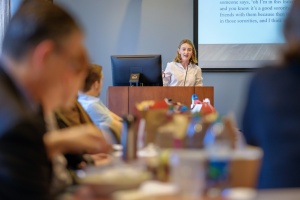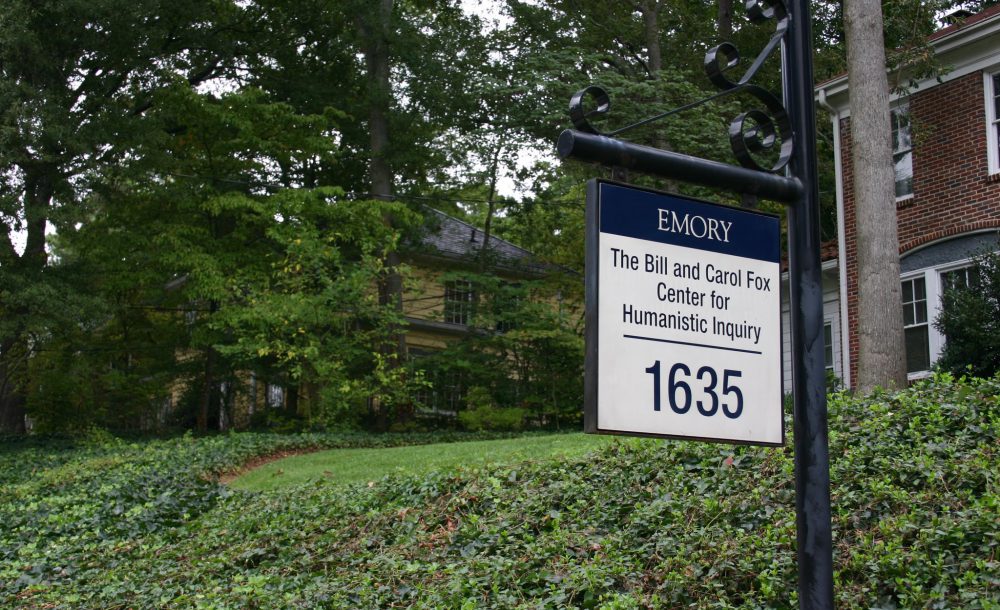by Isabel Goddard, 19C Quantitative Sciences
Fox Center Undergraduate Humanities Honors Fellow

As an Undergraduate Humanities Honors Fellow at the Fox Center this semester, I wrapped up my thesis project, “Undergraduate friendships: emblems or subversions of gendered social reproduction.” I began this research project because, as an Emory student, I was curious about the ways that other students formed their friend networks in university. I was a sophomore at the time and had just joined a sorority. I was thus suddenly thrust into this situation of very intentional and-to my surprise- strategic friendship building and social network expansion. I became interested in the different goals students had when making their friends- what they looked for in their friendships, whether this differed based on gender, or Greek life affiliation and over the course of two years, I conducted forty in depth interviews and a survey with forty-nine respondents in search of understanding how students created their social networks.
As an Undergraduate Humanities Honors Fellow, I was able to attend weekly lunches in which graduate students and professors at Emory presented their current research in disciplines ranging from philosophy to anthropology. The opportunity to be a member of this community exposed me to what the next steps of an academic career look like as well as creating a space where I could enjoy participating in unusually interdisciplinary conversations with my fellow Fellows (pun intended). I am extremely grateful to have been able to be a member of this intellectual community for my last semester at Emory, it has helped me realized the kind of academic career I hope to pursue in the future and helped me take the first steps towards this goal!
Isabel Goddard is a senior majoring in Quantitative Sciences with a Cultural Anthropology emphasis. Her undergraduate honors thesis focuses on examining the construction of diverse friendships among undergraduates and the larger social, political, and economic implications that these relationships can have after graduation. In combining both quantitative and qualitative research methods, her interdisciplinary research is able to illuminate both the nuances of friendship among Emory undergraduates through ethnographic data as well as the larger trends and implications of these networks though survey data. Specifically, her results have centered around the dynamics of gender and habitus in shaping the friendships of students. Isabel hopes to continue this research through longitudinal studies in several universities as well as incorporating social network analysis with her survey and ethnographic data in her future graduate work.
